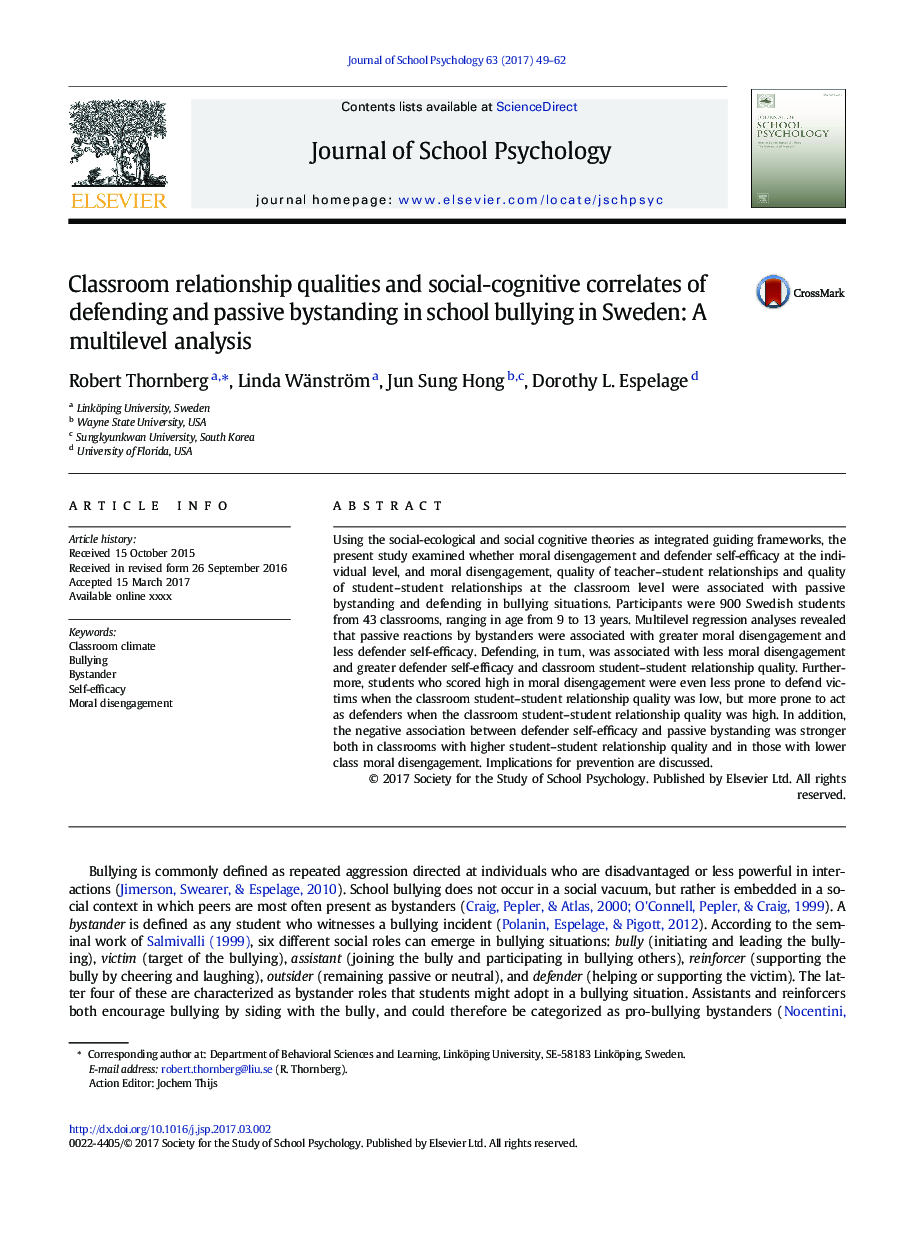| Article ID | Journal | Published Year | Pages | File Type |
|---|---|---|---|---|
| 4939788 | Journal of School Psychology | 2017 | 14 Pages |
Abstract
Using the social-ecological and social cognitive theories as integrated guiding frameworks, the present study examined whether moral disengagement and defender self-efficacy at the individual level, and moral disengagement, quality of teacher-student relationships and quality of student-student relationships at the classroom level were associated with passive bystanding and defending in bullying situations. Participants were 900 Swedish students from 43 classrooms, ranging in age from 9 to 13Â years. Multilevel regression analyses revealed that passive reactions by bystanders were associated with greater moral disengagement and less defender self-efficacy. Defending, in turn, was associated with less moral disengagement and greater defender self-efficacy and classroom student-student relationship quality. Furthermore, students who scored high in moral disengagement were even less prone to defend victims when the classroom student-student relationship quality was low, but more prone to act as defenders when the classroom student-student relationship quality was high. In addition, the negative association between defender self-efficacy and passive bystanding was stronger both in classrooms with higher student-student relationship quality and in those with lower class moral disengagement. Implications for prevention are discussed.
Related Topics
Social Sciences and Humanities
Psychology
Applied Psychology
Authors
Robert Thornberg, Linda Wänström, Jun Sung Hong, Dorothy L. Espelage,
